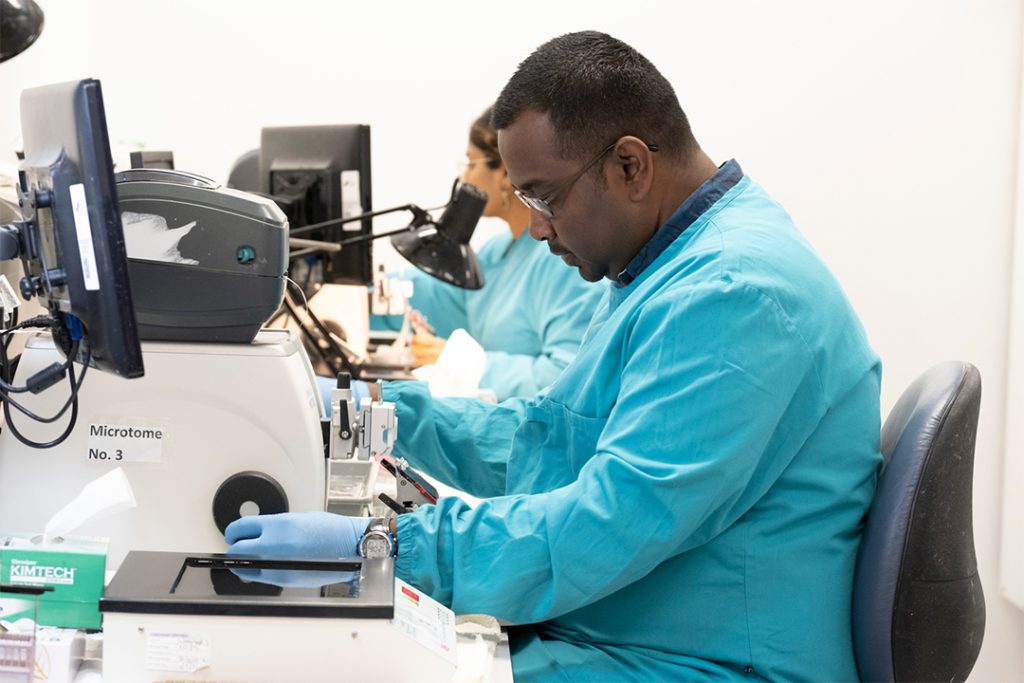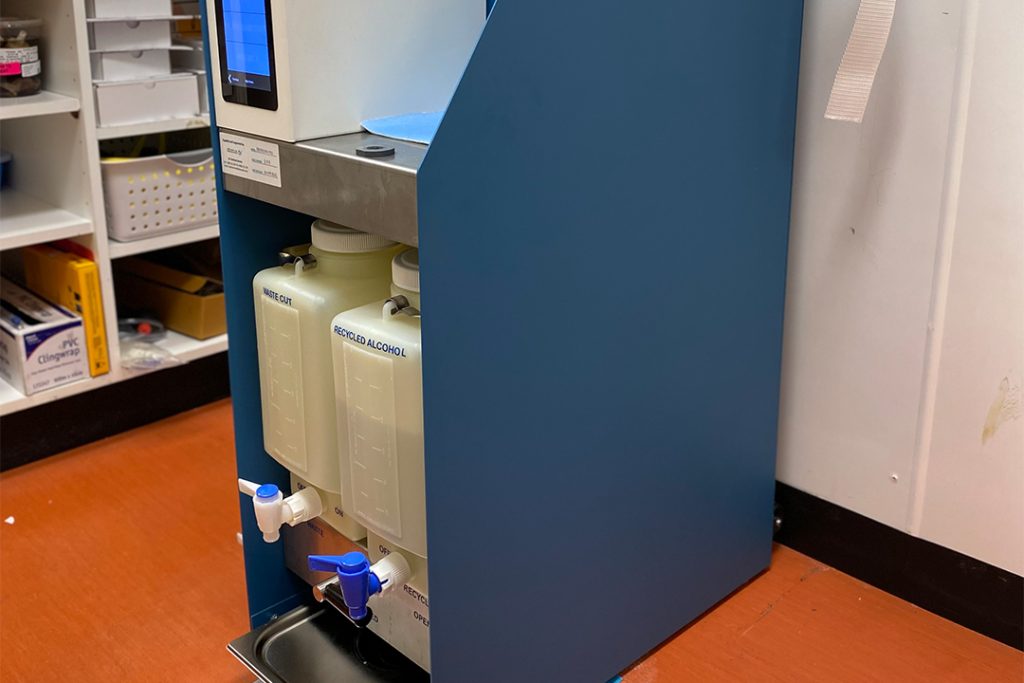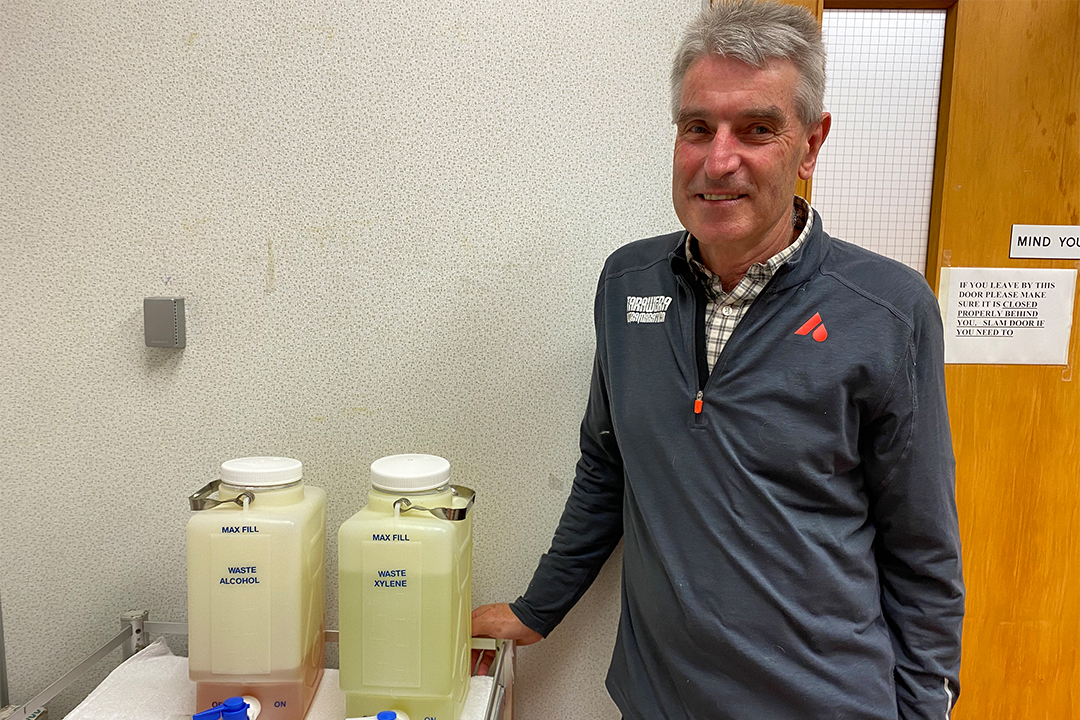Laboratory Manager Stephen Silk with the recycled alcohol and xylene.
Visitors to our Hutt Valley laboratory based in the Hutt Hospital could walk around the entire floor without noticing the solvent recycler or realising it was even there. The BR 9700 Mini-Procycler, which is the official name, is not a large piece of equipment, and nor is it taking up a lot of space in the Histology department.
“The recycler is a big part of our effort to reduce waste and cost at the lab and our commitment to becoming more sustainable,” says Laboratory Manager Stephen Silk.
Ethanol (alcohol) and xylene are solvents commonly used to prepare tissue ready for embedding into paraffin wax, formed into a “block” and then cut on a microtome. A series of ethanol solutions are used to dehydrate the tissue, followed by a series of xylene solutions used to displace/clear the ethanol in the tissue to allow the infiltration of paraffin wax.

“The processing of tissue creates quite a lot of solvent waste, especially given the number of samples prepared at our lab each day. So instead of disposing of the ethanol and xylene, the question we asked was, can they be recycled.”
Since the solvent recycler was acquired last year, the laboratory is now recycling up to 75% of its xylene (recycled back to its original purity) and recycling 80% of its ethanolback to at least 95% purity. The volume of xylene now purchased has dropped significantly and the laboratory no longer has a need to purchase a supply of 95% ethanol.
Stephen credits Histology Technical Specialist Dawn Laureles with having the idea to bring the solvent recycler into the lab.
“Before I joined Awanui in 2020, I had worked for three years at a private lab in Melbourne, which had a solvent recycler. We were talking about what we can do as a team to improve our sustainability and I suggested our lab should get one too.” says Dawn.
“We use the recycler every day and all of our Histology team have been trained to use it. The Mini-Procycler can recycle up to 8L of waste at a time. We keep the ethanol and xylene waste separate. Once we’ve filled an 8 litre waste container, we load it onto the recycler and select which recycling run we want to do. It takes up to six hours for the ethanol run and three hours for the xylene run. The recycling runs are usually performed overnight to reduce noise during work hours.”
Stephen agrees. “I knew about these recyclers, so it was not a hard sell for me. Dawn had used them in her previous lab and was very keen for us to get one. Our General Manager, Vicky McKnight, really supported this approach.”
“We are one of the few labs in the country to get a recycler such as this and it’s great to see Taranaki Pathology now have one as well.”
“As a team, we’re pretty proud of doing something positive for the environment. It’s not often you can do something which supports our sustainability initiatives and also saves costs for the laboratory operations” says Stephen.
“Along with the environmental benefits, having the recycler has made a huge difference to our volume of waste. It has not only reduced overall waste removal, but we also bring less of supply in. It’s not a big piece of equipment but it is doing a really impressive job.”

